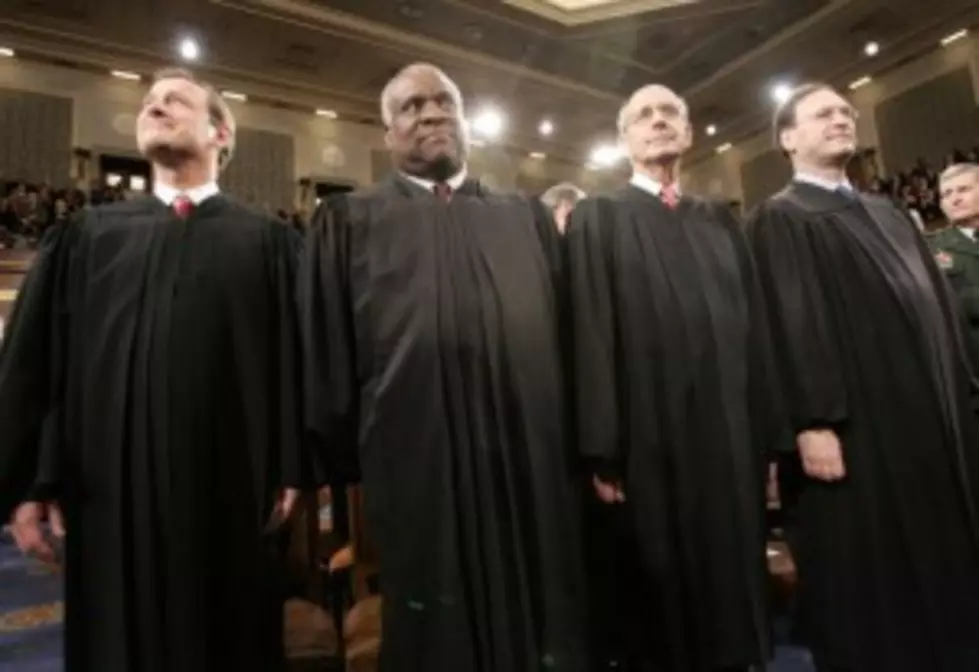
What’s At Stake with Hobby Lobby vs. Supreme Court Over Abortion Insurance?
What exactly is being decided before the highest court in the land?
According to the Family Policy Institute of Washington, a pro-life faith-based group, here's a simple explanation, or as simple as we can make it. Hobby Lobby, who already offers a number of female contraceptive options through it's health care plans, does not want to cover birth control that it believes is "life-ending," such as abortion. The company has sued the Obama Administration over the Affordable Care Act, which requires abortion coverage for women.
Freedom of religion has traditionally been protected in the U.S. From time to time, the First Amendment has had to be used to protect the free right to exercise one's faith. Courtesy of the Cornell University Law School website, here is the First Amendment of the Constitution:
" Congress shall make no law respecting an establishment of religion, or prohibiting the free exercise thereof; or abridging the freedom of speech, or of the press; or the right of the people peaceably to assemble, and to petition the government for a redress of grievances."
In 1993, Congress passed the Religious Freedom Restoration Act (RFRA) to counter a 1990 Supreme Court ruling that Native American Indians could NOT use peyote in their religious ceremonies because it was illegal to everyone. Congress was concerned about government's intrusion into religious freedom, and unless there is an overwhelming or compelling reason to do so, government must stay OUT of people's religious ceremonies or practices. This is a much higher compelling standard, one that is observed today.
Of course, if a religion practices human sacrifice, or any other harmful, threatening or otherwise destructive practices, they're going to be stopped. That goes without thinking. But the RFRA was designed to allow people to peacefully practice their beliefs.
Today's Supreme Court dealings are to determine if a company can use the same RFRA standard as can the individual. Can a business be religious, especially if founded, owned and operated as such by faith-based individuals? If the Supreme Court's answer is "no", then those owners-operators will LOSE their freedom of religion as individuals when they are part of a for-profit corporation.
No official action is expected until June by the Supreme Court, but experts will try to figure out which way they are leaning by what questions they ask Hobby Lobby, and the government.
This case is considered very similar to the Arlene's Flowers case in Richland, and other cases where faith-based businesses have declined to provide services to same-sex couples due to their religious beliefs. This is being considered a significant "test-case" that could set the tone for rulings in dozens of other similar cases, such as Arlene's.
Again, the question being considered: Can a business be considered "religious" based upon the faith and practices of it's founder, owner, or operator?
More From 870 AM KFLD









